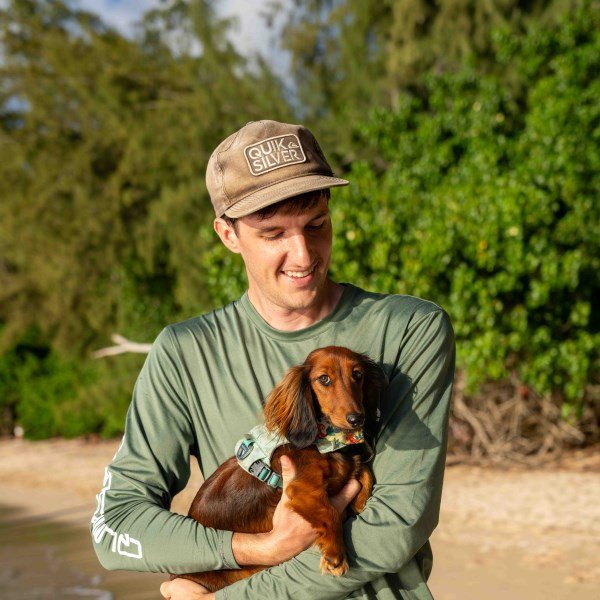Hiking the Cinder Cone Trail (Painted Dunes) in Lassen Volcanic National Park
Distance: 3.2 - 4.8 miles / 5.1 - 7.7 km
The Cinder Cone Trail, also called the Painted Dunes Trail, in Lassen Volcanic National Park, is a beautiful adventure in the Butte Lake District that, in my opinion, is the single best day hike in Lassen that does not begin off Lassen Peak Highway!
I believe this because the Cinder Cone Trail is unique in that hikers have the opportunity to hike up and explore the depths of a natural volcanic cinder cone. However, what’s perhaps even more notable is that the Cinder Cone is located directly adjacent to the colorful Painted Dunes that wrap around the south side!
That said, the Painted Dunes are best enjoyed by hiking the full loop trail, as outlined in this article, but more importantly, if you are interested in capturing the best colors at the Painted Dunes, I highly recommend hiking the Cinder Cone Trail for sunrise, as this is when they are the most vibrant!
Cinder Cone Trailhead Parking
Parking for the Cinder Cone Trail is located in one of two places near the Butte Lake Ranger Station.
First, there is a very small parking area just outside the trailhead for both Prospect Peak and the Cinder Cone, but if the closest area is full, hikers can park in the larger lot that serves both Butte Lake and the Bathtub Lake Trail.
Before arriving, be aware that entrance fees are required to park and hike the Cinder Cone Trail, even though Butte Lake Road does not pass a National Park entrance booth. For this reason, it’s important to leave your entrance receipt or federal recreation pass visible in your vehicle before setting off—or, you risk receiving a citation upon return.
Google Maps Directions: Cinder Cone Trailhead
Hiking Checklist - Lassen Volcanic
Here is a complete list of must-have things that you will want for any hike in Lassen Volcanic National Park.
That said, bear spray is purposefully excluded from this list because, while the park is home to Black Bears, bear spray is not allowed in Lassen Volcanic National Park.
Hiking the Cinder Cone Trail
The Cinder Cone Trail begins at the joint trailhead that serves both the Cinder Cone and Prospect Peak, as well as other backcountry destinations like Snag Lake, where hikers often camp overnight.
The 1.2-mile (1.9 km) distance on the sign is only the distance to the base of the Cinder Cone, not the top, or the loop around the back side.
For the most part, the Cinder Cone Trail follows a fairly flat path for the first 1.2 miles (1.9 km), after which the trail abruptly becomes very steep on the short ascent to the top.
Fantastic Lava Beds
The Fantastic Lava Beds is this ʻAʻā lava flow that parallels much of the hike to the Cinder Cone on the left-hand side of the trail.
That said, I recommend checking out the Cinder Cone and Butte Lake area on Google Satellite, because the direction of flow can clearly be seen coming out of the Cinder Cone toward both Butte and Snag Lake from above.
Cinder Cone-Prospect Peak Junction
After 0.4 miles (0.6 km), the Cinder Cone Trail splits, with the trail that climbs west from this junction up to the summit of Prospect Peak.
Once here, go straight (left) at this split to continue hiking toward the Cinder Cone.
Read My Separate Post: Prospect Peak Trail
For those interested, pamphlets can be picked up at the park visitor center and the Cinder Cone Trailhead to follow along with the numbers posted throughout the hike.
Alternatively, the same pamphlet can be downloaded using the link below.
Download: Cinder Cone Trail Guide
This is where the Cinder Cone starts to become visible for the first time through the Ponderosa trees!
Just before the Cinder Cone, the trees begin to thin considerably, which is why I recommend hiking the trail in a hooded sun shirt, as there’s essentially no shade until the return hike at the very end.
East Cinder Cone-Nobles’ Emigrant Junction
After 1.2 miles (1.9 km), the Cinder Cone Trail splits into two paths.
First, there is the Cinder Cone Trail that leads directly to the top, and second there’s a bypass that loops around to an alternative trail to the top, which is also the route to Snag Lake.
That said, I personally recommend going left here, because the trail on the other side (the loop I recommend returning on) is a much steeper ascent than the path shown here.
Regarding my thoughts above, I chose to go left.
From the bottom of the Cinder Cone to the Cinder Cone Loop Trail at the top, it’s a challenging 0.4-mile (0.6 km) ascent that climbs 475 ft. (145 m) up the steepest part of the trail thus far!
This may seem like the steepest part of the Cinder Cone Trail, but if you decide to continue along the full loop, the descent on the other side is actually shorter and steeper than this section here!
West Cinder Cone-Cinder Cone Loop Junction
When the Cinder Cone Trail reaches the top, hikers have the opportunity to either go left toward the summit or right to continue around the long way to the other side.
Personally, I recommend going right to explore more of the top of the Cinder Cone. However, if you are hiking up for sunrise, I suggest hiking directly to the other side of the crater toward the Painted Dunes, as the southern side of the Cinder Cone Loop is the better spot to watch the sunrise!
This is the Cinder Cone Loop Trail by going right in the counterclockwise direction.
This is the beginning of the Painted Dunes, with Lassen Peak off in the distance!
From this viewpoint, all four trails that descend to the Inner Cinder Cone Loop can be seen, but among the four, I recommend taking the one on the east side of the Cinder Cone, as this is also where the trail to the bottom can be found.
I have hiked the Cinder Cone Trail both in the dark to summit at sunrise and shortly after, as shown in this article, and from experience, I can say that it doesn’t take long for the colors above the Painted Dunes to become more washed out.
This is why I highly recommend hiking the Cinder Cone Trail earlier than you may initially think in order to capture the best photos!
East Cinder Cone-Cinder Cone Loop Junction
On the east side of the Cinder Cone, hikers have the option of either going left to hike to the bottom of the Cinder Cone, going straight to continue around the loop toward the summit, or going right to begin the return loop by the Painted Dunes and back around to the beginning.
Personally, I recommend doing all three, as shown in the sections below.
To skip ahead to this same junction for both the Cinder Cone Loop Trail and the return loop, click the links below.
Skip Ahead: Cinder Cone Loop Trail (Summit) / Cinder Cone Trail (Painted Dunes)
Inner Cinder Cone Trail
This is the route to the left that leads to the bottom of the Cinder Cone.
This descent is just as steep, if not steeper, than the hike at the beginning of the Cinder Cone!
That said, this short section to the bottom reminds me of the Ubehebe Crater Trail in Death Valley National Park.
The bottom of the Cinder Cone sits roughly 150 ft. (46 m) below the East Cinder Cone junction at the top of the crater.
East Cinder Cone-Cinder Cone Loop Junction
If you decide to continue around the Cinder Cone Loop and up to the summit, go straight at this junction to reach the top, just 0.1 miles (0.2 km) ahead.
To skip ahead to this same junction for both the return loop, click the link below.
Skip Ahead: Cinder Cone Trail (Painted Dunes)
Cinder Cone Summit
According to the National Park Service, the top of Cinder Cone stands at 6,907 ft. (2,105 m), or about 530 ft. (162 m) above the base of the Cinder Cone below.
This is the rest of the Cinder Cone Loop Trail, leading back to the original junction from the beginning.
West Cinder Cone-Cinder Cone Loop Junction
If you decide to return via the same west side trail from the beginning, go right once you are back at the start of the loop, and the base of the Cinder Cone will be reached just 0.4 miles (0.6 km) down the steep trail.
East Cinder Cone-Cinder Cone Loop Junction
Finally, the route to the right of the East Cinder Cone Loop junction leads around the backside of the Cinder Cone, directly past the Painted Dunes.
That said, I could not recommend the full loop trail more, because it really isn’t all that difficult—just longer—as it’s about 1.3 miles (2.1 km) back to the original split at the base of the Cinder Cone, compared to 0.4 miles (0.6 km) down the west side.
While the east descent is almost exactly the same at around 475 ft. (145 m), it is shorter by about 0.1 miles (0.2 km), making it steeper overall.
With that in mind, some hikers may prefer to carry trekking poles, especially considering how soft the volcanic soils on the Cinder Cone Trail are.
This is the bottom of the steep 0.3-mile (0.5 km) descent.
After the steep east descent, the Cinder Cone Trail continues down a much more gradual path toward the first of two different junctions before returning to the beginning.
Cinder Cone-Snag Lake Junction
At this first junction, go right to continue back to the beginning, as the trail to the left is the backcountry route that leads to Snag and Rainbow Lake.
The west side of the Cinder Cone is where the trail becomes much flatter, similar to the Ponderosa forest at the very beginning.
West Cinder Cone-Nobles’ Emigrant Junction
When the Cinder Cone Trail splits for a second time, go right once again, and the beginning of the loop will be reached in just 0.4 miles (0.6 km).
East Cinder Cone-Nobles’ Emigrant Junction
Once back at the beginning of the loop, go left to begin the 1.2 mile (1.9 km) hike back to the trailhead at Butte Lake.





















